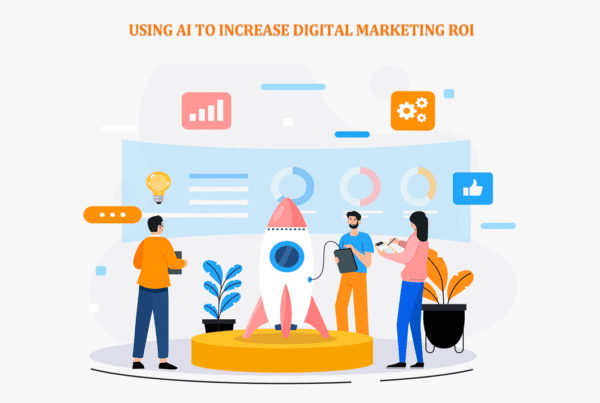Introduction
The combination of digital marketing and e-commerce has become an irrepressible force, changing the way businesses engage with customers and generating unprecedented growth in online sales. The role of digital marketing in shaping ecommerce trends is getting more important as technology continues to evolve and consumer behaviors change. This article will look at how digital marketing is fostering innovation, directing customer behavior, and influencing e-commerce’s future.
Digital Marketing
From banner ads and email campaigns, digital marketing has come a long way to being a sophisticated ecosystem of channels and strategies that can be used to engage consumers across multiple touchpoints. Today, it takes in search engine optimization (SEO), content marketing, email marketing, social media marketing, and influencer partnerships, among others. These approaches help firms connect with customers on an individualized level by relying on data analysis, thereby promoting brand awareness, attraction, and conversion. You can also use WooCommerce Call for Price plugin to further improve your digital marketing game.
Personalization and Targeting
Emphasis on personalization/ targeting is one of the most notable developments set to shape the future of e-commerce. Digital marketing enables brands to collect vast amounts of data on consumer preferences, behaviors, and purchasing habits, allowing them to deliver highly personalized experiences tailored to individual needs and interests. From targeted ads and product recommendations to personalized email campaigns and dynamic website content, personalization has become a cornerstone of e-commerce success.
Omnichannel Integration
Another significant development in digital marketing is the movement towards omnichannel integration, where companies allow customers to experience the same seamless buying process through a range of devices and platforms. Digital marketing has an important role in managing these omnichannel experiences so that there is consistency and coherence across all touchpoints. Digital marketing strategies enable brands to create connected customer journeys for engagement, conversion, and brand loyalty via social media channels, email, and mobile apps, as well as brick-and-mortar businesses.
Visual and Interactive Content
Visuals and interactive content are now more relevant than ever before in the e-commerce industry since they attract attention and facilitate engagement within a noisy, digitized world. Platforms such as Instagram, Pinterest, or TikTok have led the way in visual-first marketing approaches like influencer collaborations, UGC campaigns, or immersive events. From posts on social media that can be bought to video clips showing products being used virtually or even virtual fitting rooms where buyers can try clothes without actually wearing them physically, visual & interactive content is revolutionizing online product discovery, interaction as well as purchase processes by consumers.
The emergence of voice commerce as an online shopping platform through voice-enabled devices and virtual assistants has created a new frontier of commerce in the e-commerce industry. Digital marketing strategies that rely on voice search optimization, chatbots, and conversational AI create opportunities to engage with consumers in natural conversation, which leads to discovery and smooth transactions. With the help of AI-powered chatbots or voice-based search browsers, conversational marketing is changing how consumers interact with brands and make buying choices.
The Future of Cookies
For online behavior tracking, third-party cookies remain the traditional method; however, they are rapidly declining and hindering conventional targeted advertising. In order to fuel effective marketing campaigns with robust customer profiles, digital marketers will need to get creative with new targeting strategies by leveraging zero-party data (data provided directly by customers) and first-party data (which come from interactions on websites).
This is how digital marketing shall embrace the cookieless future.
- Zero-Party Data Collection: Encouraging customers to give clear consent for providing data through profile surveys or quizzes as well as preference centers, leading to better targeting and personalization.
- First-Party Data Activation: Making use of data gathered through website visits like purchase history and browsing behavior in coming up with email marketing campaigns, personalized product recommendations, and retargeting strategies.
Social Commerce Takes Center Stage: A Collaborative Performance
Once, social networking sites were merely for keeping in touch with loved ones. Today, they are becoming robust platforms for doing business online. For instance, through features like Instagram Shops and Facebook Marketplace, brands can display their products and allow users to make purchases on the app besides developing communities around their brands. At times, when shopping on social media apps, one might imagine purchasing a product seen from an influencer’s post by just clicking it.
Digital Marketing strategies for social commerce will include:
- Livestream Shopping Events: Hosting interactive live shopping events on social media platforms, where influencers and brand representatives present items and respond to customer inquiries instantly.
- Shoppable Social Media Posts: Making use of social media functionalities such as product tagging to enable direct purchase of products within posts or stories.
- Influencer Marketing Partnerships: Joining forces with people who influence others’ decisions through social media to promote goods and services to new markets. This could mean paid reviews, product descriptions or even content created by the influencing individuals themselves.
Sustainability and Ethical Branding
With the world getting more eco-conscious every day, sustainability and ethical branding are becoming differentiating factors for brands when they want to resonate with socially aware customers. When it comes to spreading brand values or disclosing sustainability initiatives via digital media often termed as amplification, digital marketing is an important player. Ranging from environment-friendly product campaigns to supply chain transparency disclosures, digital marketing lets manufacturers manifest their dedication towards being sustainable while building stronger connections with ethically oriented consumers.
Mobile Commerce and App Marketing
Mobile commerce (m-commerce) has experienced explosive growth lately with the proliferation of smartphones and mobile devices. Businesses have invested heavily in digital marketing to drive this trend, optimizing their websites and campaigns for mobile users.
Furthermore, businesses are increasingly using mobile apps as a way to encourage interaction with customers and increase sales. App store optimization (ASO), push notifications, and in-app advertising are some of the digital marketing strategies that enable businesses to market their apps and attract downloads, engagement, and conversion rates, among others. Seizing on the burgeoning trend of mobile commerce by providing a seamless user experience for mobile shoppers will expose businesses to new revenue streams.
Looking Ahead
As we look to the future, the role of digital marketing in shaping e-commerce trends will continue to evolve in response to technological advancements, shifting consumer behaviors, and emerging market dynamics. The digital marketing landscape will be characterized by innovation, experimentation, and adaptation due to the proliferation of artificial intelligence (AI) and machine learning algorithms, as well as the rise of immersive technologies such as virtual reality (VR) and augmented reality (AR).
Conclusion
In this dynamic environment, businesses must embrace agility and creativity in their digital marketing strategies, always finding new ways to interact with consumers in a fast-changing internet business. By keeping an ear out for emerging trends, using insights obtained from data analytics to make decisions, and creating a true bond between a product/service and its customers, companies can position themselves favorably for future e-commerce frontiers.
In summary, digital marketing is not just an online sales booster; it’s an instrument for innovation in e-commerce. Brands that personalize experiences through digital marketing integration of omnichannel interactions, visual interactive content, voice commerce facilitation sustainability advocacy can build their success roadmap in the e-commerce progressing world. Digital Marketing will continue shaping directions, spearheading growths, defining how we make purchases and engage with brands online as we explore future commerce frontiers.









